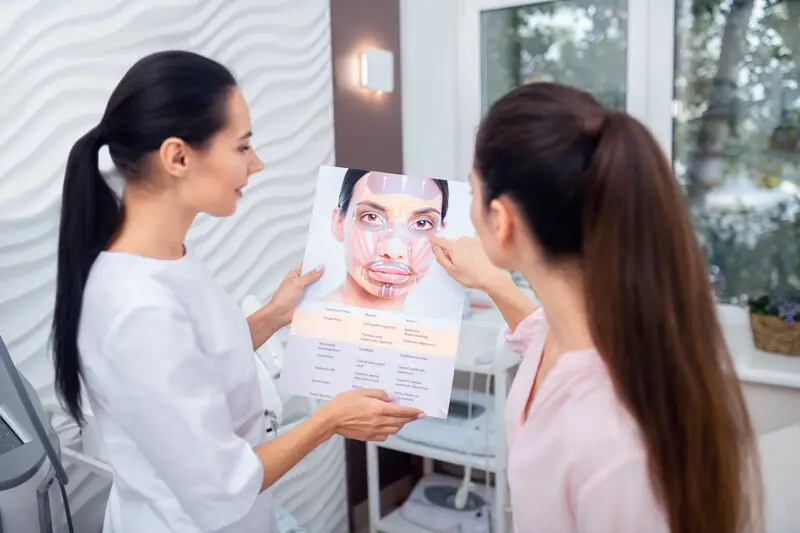- Published on: Aug 11, 2021
- 2 minute read
- By: Expert Dermatologist
Why Is My Hair Falling Out? Understanding The Common Causes
Ever noticed your hair falling out when you run your fingers through it? Wonder why it happens? Let's figure out the reasons behind hair loss together. Join us on this journey to understand why hair falls out and find ways to make it healthier and fuller.
Understanding Hair Loss
Hair loss is a common concern affecting people of all ages and genders. To comprehend the root causes, it's crucial to delve into the anatomy of our hair. Each strand undergoes a natural growth cycle, including a growth phase (anagen), a transitional phase (catagen), and a resting phase (telogen). The balance of these phases can be disrupted by numerous factors, leading to hair fall.
Hair Loss Causes Explored
Genetics and Hereditary Factors: If your family tree has a history of baldness or thinning hair, there's a higher likelihood of you experiencing the same.
Hormonal Imbalance: Fluctuations in hormones, especially during pregnancy, childbirth, or menopause, can trigger hair loss.
Nutritional Deficiencies: Inadequate intake of essential nutrients like iron, vitamins, and proteins may starve your hair follicles, causing them to weaken.
Stress and Lifestyle: A high-stress lifestyle and poor habits, such as excessive smoking or lack of sleep, can contribute significantly to hair fall.
Reasons for Thinning Hair
Medical Conditions: Underlying health issues like thyroid disorders, autoimmune diseases, or scalp infections can lead to thinning hair.
Chemical Exposure: Excessive use of harsh chemicals in hair treatments and styling can damage hair follicles, causing them to weaken and fall out.
Tight Hairstyles: Constantly tying your hair in tight hairstyles can lead to traction alopecia, a condition resulting from the constant pulling of hair.
Medications and Treatments: Certain medications, such as chemotherapy drugs, can have hair loss as a side effect. Discuss potential hair loss concerns with your healthcare provider.
Hair Baldness Causes Explored
Androgenetic Alopecia: This hereditary condition is the most common cause of hair loss, leading to pattern baldness in both men and women.
DHT Hormone Impact: The hormone dihydrotestosterone (DHT) can shrink hair follicles, leading to shorter and finer hair strands until they no longer produce visible hair.
Online Doctor Consultation for Hair Fall
Now that we've explored the various causes of hair fall, it's crucial to take proactive steps toward addressing the issue. An online doctor consultation can be a game-changer in your journey to healthier hair. Here's why:
Personalized Guidance: Online doctors can provide tailored advice based on your medical history, lifestyle, and specific hair loss causes.
Prescription Medications: Prescription medications, such as minoxidil or finasteride, may be recommended by online doctors to stimulate hair growth or prevent further loss.
Lifestyle Recommendations: Online consultations often include lifestyle recommendations, such as dietary changes and stress management strategies, to promote overall hair health.
Taking the First Step
Consult a Trichologist: Schedule an online consultation with a trichologist to get a thorough analysis of your hair and scalp health.
Follow Recommended Treatments: Adhere to the prescribed medications and lifestyle changes recommended by the online doctor for effective results.
Patience is Key: Understand that addressing hair fall is a gradual process. Be patient and consistent in following the recommended treatments.
conclusion:
In essence, understanding the roots of hair fall is the inaugural step toward regaining mastery over your locks. Whether it's the thread woven through generations, hormonal ebbs and flows, or the daily choices we make, each element intricately contributes to the delicate dance of hair growth. To seize control of your hair health, immerse yourself in the realm of online doctor consultations, where personalized advice becomes a compass for your unique journey. Embrace a holistic strategy, addressing the core issues of hair fall from multiple angles. Today marks the genesis of a transformative odyssey toward a head of hair that not only boasts fullness but radiates vitality. Take hold of the reins, embark on this path with determination, and nourish your locks with the care they truly deserve. The road to a lusher, healthier mane awaits, and it starts with your commitment today.
Read FAQs
A. The primary reason for hair fall varies, encompassing factors such as genetics, hormonal imbalances, nutritional deficiencies, and lifestyle choices.
A. Sudden hair loss can be triggered by various factors, including stress, illness, hormonal changes, or a significant life event. Identifying the specific cause is crucial for effective management.
A. Nutritional deficiencies, especially in iron, vitamins (like Biotin and Vitamin D), and proteins, can contribute to hair fall. A well-balanced diet and proper supplementation can address these deficiencies and promote healthier hair.










